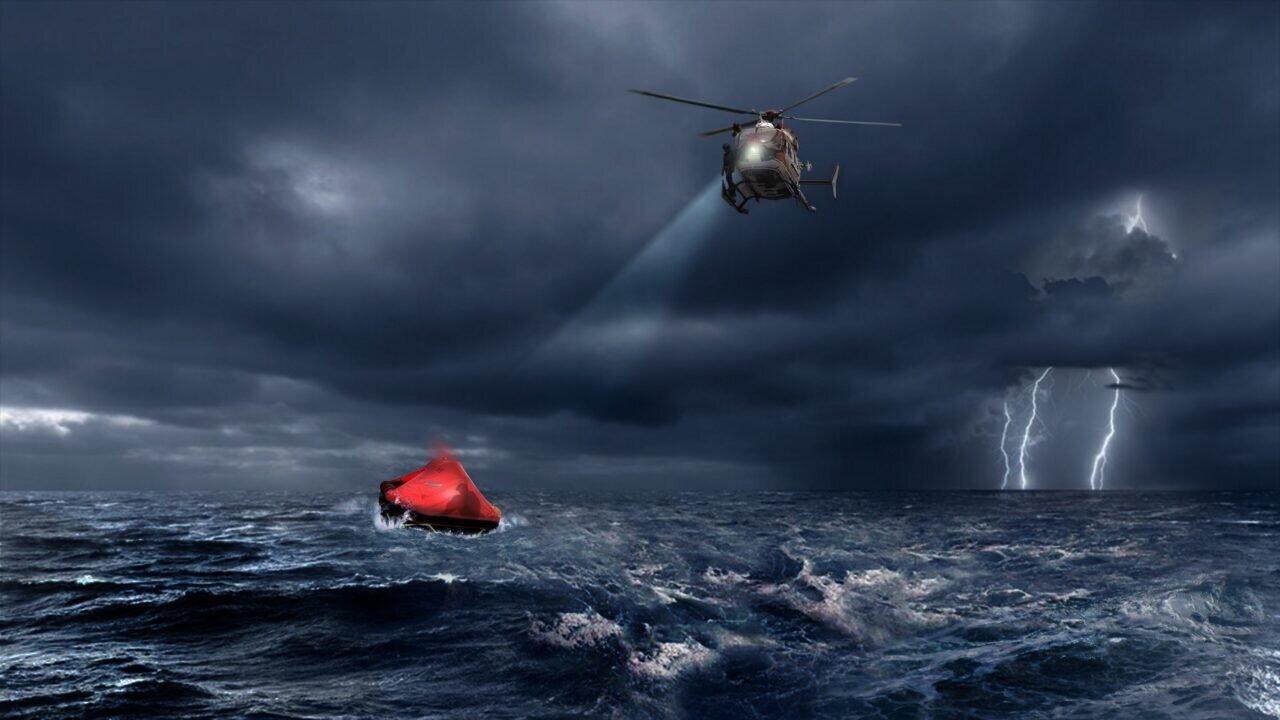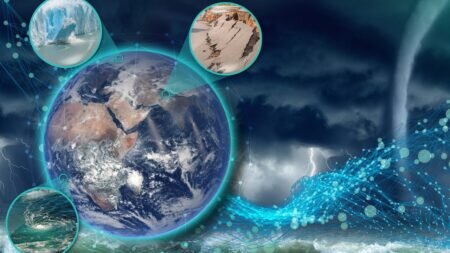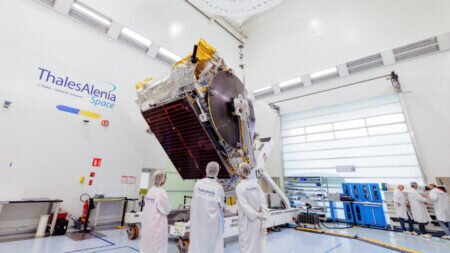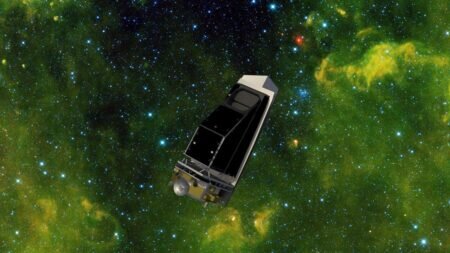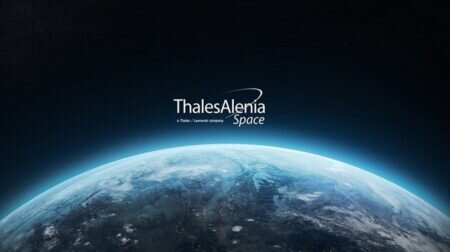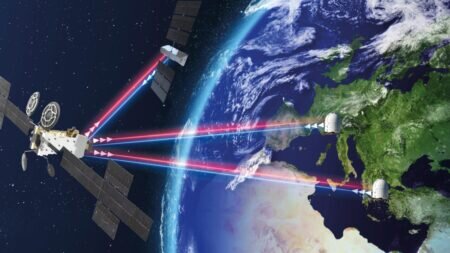Thales Alenia Space, the joint venture between Thales (67%) and Leonardo (33%), has signed a contract with prime contractor MKE to provide Vietnam with a MEOLUT Next ground station that will operate as part of the COSPAS-SARSAT global MEOSAR search-and-rescue (SAR) network.
The solution will make it possible to detect and locate distress signals from COSPAS-SARSAT beacons on land, in the air and at sea instantaneously over a radius of 2,500 km centered around Haiphong, mainly using the Galileo satellite positioning system.
Thales Alenia Space’s innovative MEOLUT Next product, which employs a phased array antenna, will give Vietnam unrivaled performance. Where conventional MEOLUT systems rely on six large parabolic antennas each covering an area about the size of a football field and are therefore only capable of receiving signals from six satellites simultaneously (one per antenna), the MEOLUT Next solution, with its compact antennas taking up less than six square meters, tracks up to 30 satellites, significantly enhancing distress beacon detection and expanding coverage. MEOLUT Next is thus capable of detecting and locating distress signals from more than 5,000 km away.
The solution is already operated by the main users of COSPAS-SARSAT (USA, Canada, France, the European Union, and Togo) and more recently by Thailand. It is today helping to save lives, as recently demonstrated in the Indian Ocean. On November 18, 2022, a MEOLUT Next antenna picked up a distress signal from the Asteria, a yacht skippered by Tapio Lehtinen competing in the Golden Globe race, 2,000 km southwest of La Réunion, well outside the range of VHF radio and other communications systems. The Asteria was sinking fast, and Tapio just had time to put on his survival suit and jump into his liferaft before activating his COSPAR-SARSAT distress beacon. Within only four minutes, MEOLUT Next had pinpointed the boat’s location to guide rescue crews to the scene and save the skipper.
“This is the second contract to deploy our MEOLUT Next solution in Asia, following the one recently awarded in Thailand, a testament to the operational performance of this technology in ensuring the safety of people and property,” said Benoit Broudy, Vice President, Navigation at Thales Alenia Space in France. “Saving lives is something that ties in with our company’s aspirations, as demonstrated by our contribution to COSPAS-SARSAT search-and-rescue services.”

